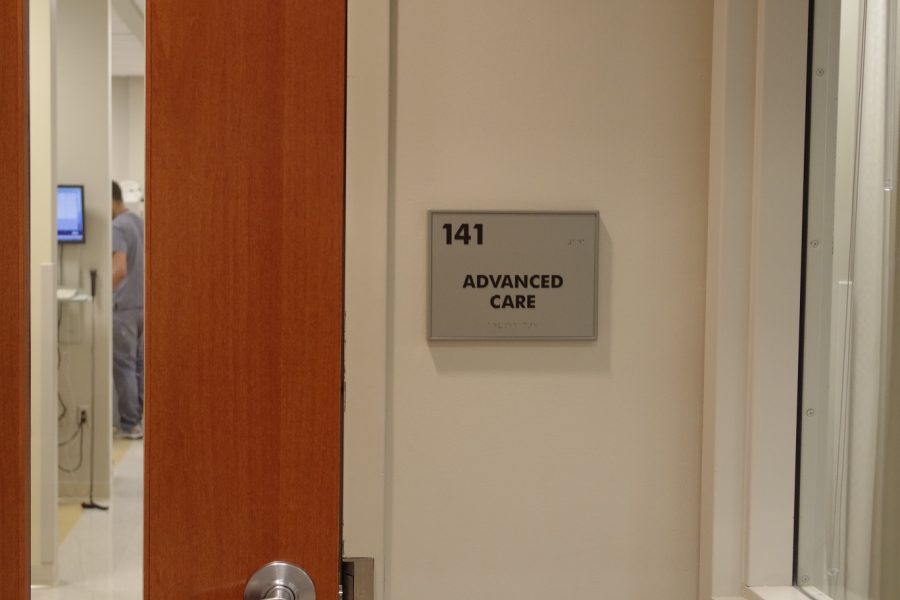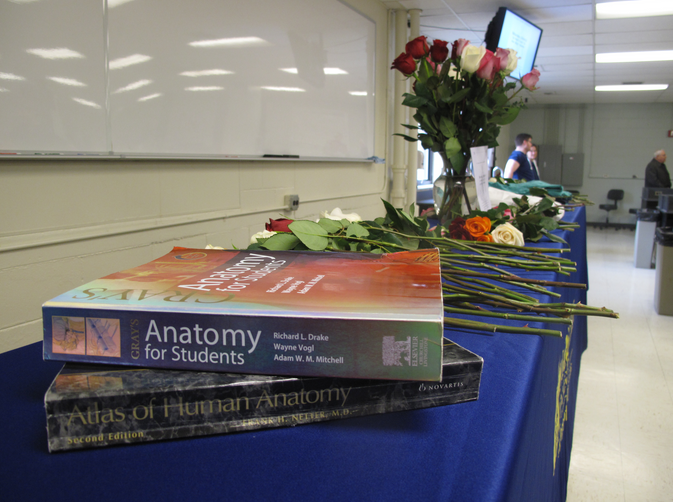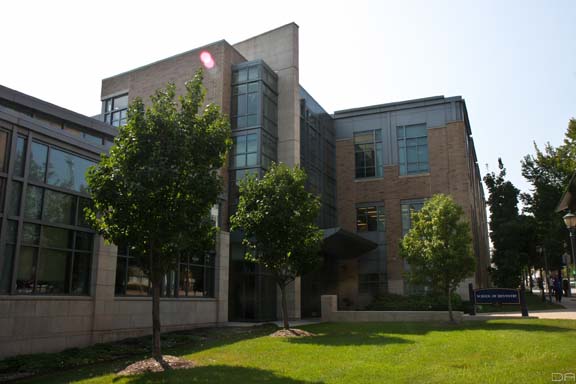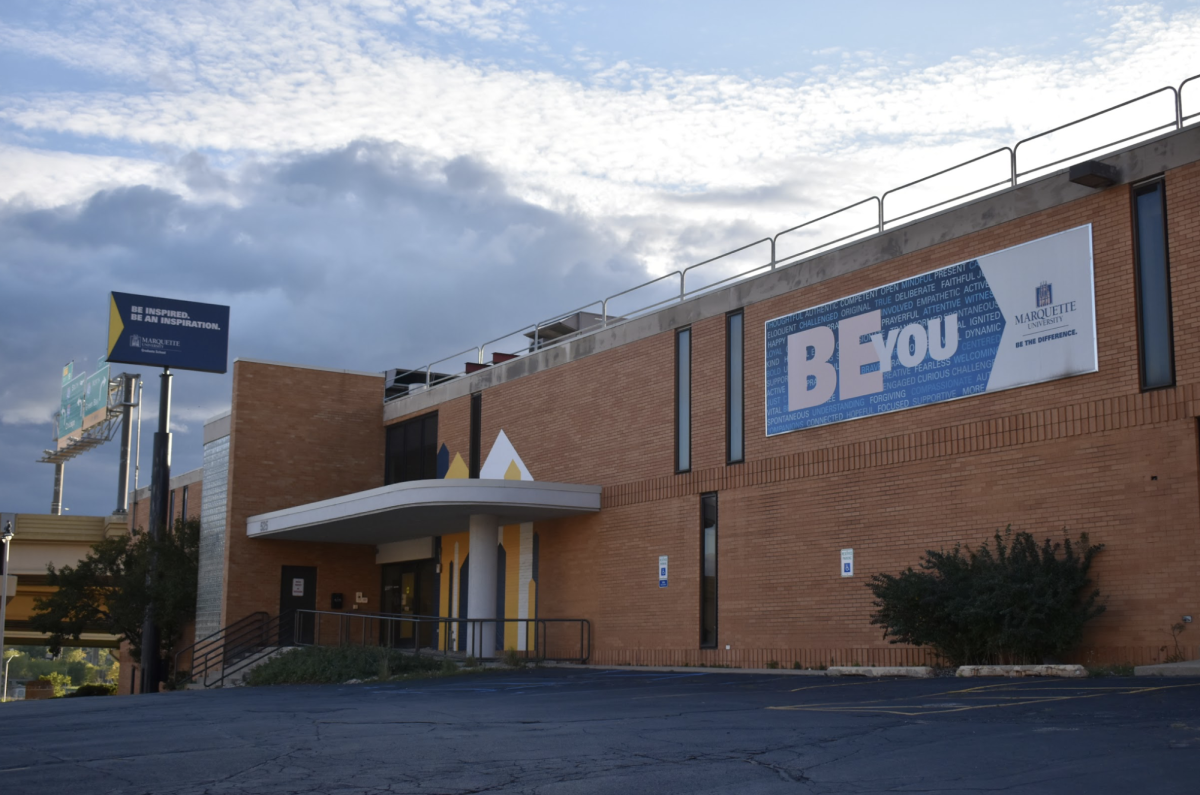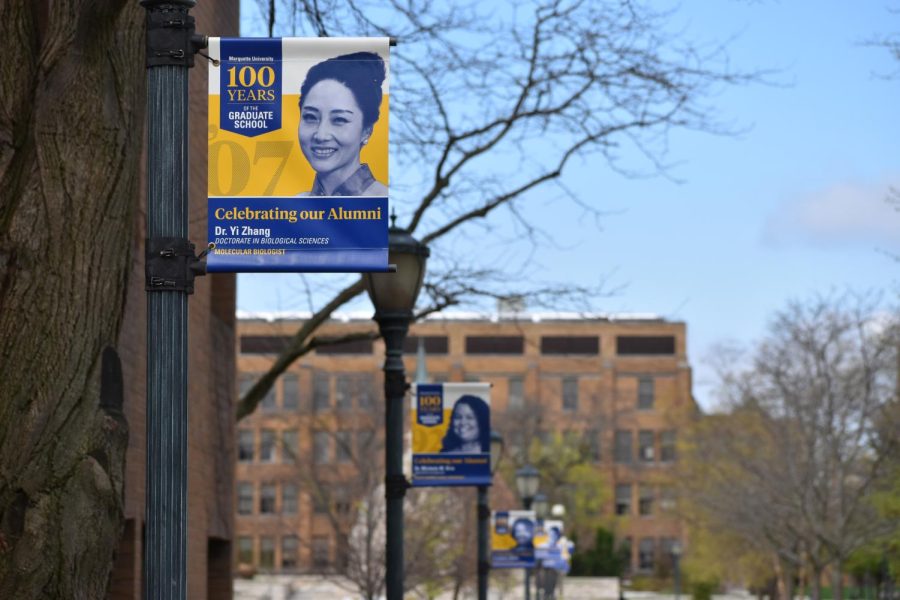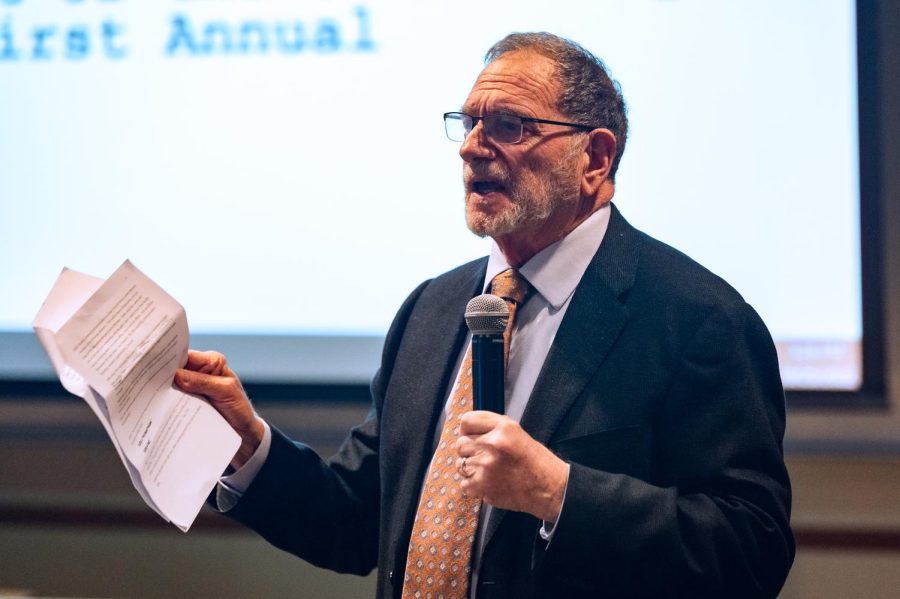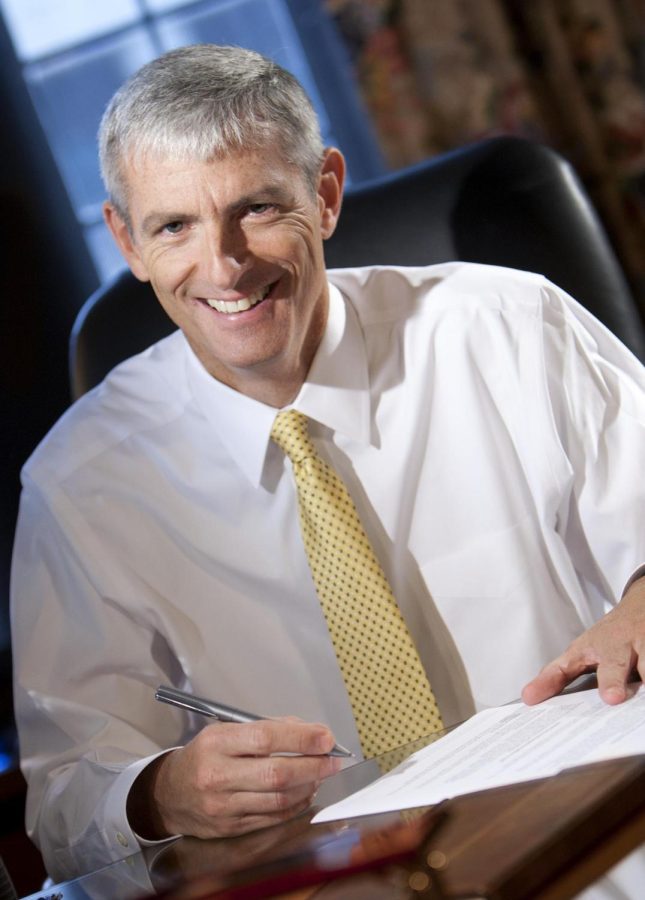Graduate schools across the country have seen declines in enrollment with the struggling economy, and Marquette’s Graduate School is no exception.
The school has experienced a slight downturn in enrollment but is still maintaining high interest among prospective students.
Marquette’s notable programs include advanced degrees in Dentistry, Professional Studies, Criminal Justice Administration and Nursing.
Although strong interest remains, Jay Caulfield, associate dean and associate professor of leadership and ethics, said the graduate school has 57 fewer enrolled students this year compared to last.
“If we look at the trend nationally, graduate school enrollments have shown a slight decline,” Caulfield said. “Marquette’s graduate school, as a whole, has not experienced the decline until this fall.”
Assistant Dean Craig Pierce said interest in Marquette’s graduate program has increased about 5 percent between fall 2011 and fall 2012.
Pierce said lower enrollment could be caused by the poor economy. She said recent federal regulations that no longer allow graduate students to delay paying interest on government-subsidized loans could also contribute to the drop in enrollment.
Pierce said the Marquette Graduate School actively seeks to attract a superior group of students.
“We are all competing for many of the same students,” Pierce said. “But we feel that Marquette has something special to offer students, and that is a Jesuit education that is truly transformational in nature.”
Marquette’s Graduate School attracts a dominantly Midwestern group, as 80 percent of students are from surrounding states.
Such Jesuit ideals may not be influential enough, Pierce said. He said roughly half of Marquette undergraduates planning to attend graduate school will pursue their degree at another institution.
“We hope to keep the best and brightest of our graduates here if it fits their plans, but we also realize that there are very good and valid reasons that a student might want to attend graduate school elsewhere,” Pierce said.
Caulfield said about 80 percent of Marquette graduate students have completed their undergraduate degrees elsewhere.
Although enrollment appears to be on the decline, Michael Class, a professor in the College of Professional Studies, said his online classes have increased in number. Class said is teaching his largest class ever this semester.
Associate professor Ed de St. Aubin said he has seen an upswing in enrollment in the psychology department.
“The number applying to our program has increased significantly, but we only accept a handful, as that is all our resources will allow,” St. Aubin said.
St. Aubin said this increase may be caused by the school’s increased national reputation as a quality program over the last decade.
Jean Simmons, associate dean of the Graduate School of Management, said there has been a slight decrease but stressed the value for those who pursue a Marquette masters degree.
“We focus on service to our students,” Simmons said. “They are working full time, going to school part time and typically have families. We do what we can to minimize the administrative hassles that students may run into. They need to focus their time on classwork.”
Simmons said the graduate school has made efforts to better serve students. It recently introduced a new focused recruiting program that seeks to enroll students from China to further diversify the school’s population.
Pierce concluded that the state of graduate education at Marquette is, nevertheless, a healthy one.
“There is no doubt that the landscape of higher education is changing, especially with the proliferation of online programs and for-profit institutions,” Pierce said. “We don’t want to be chasing the latest fad, but at the same time we need to recognize the changes, challenges and opportunities, and position ourselves to best capture our strengths and the unique nature of a Marquette education.”

